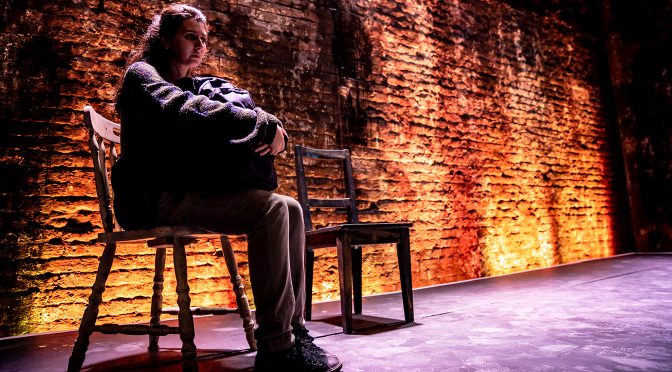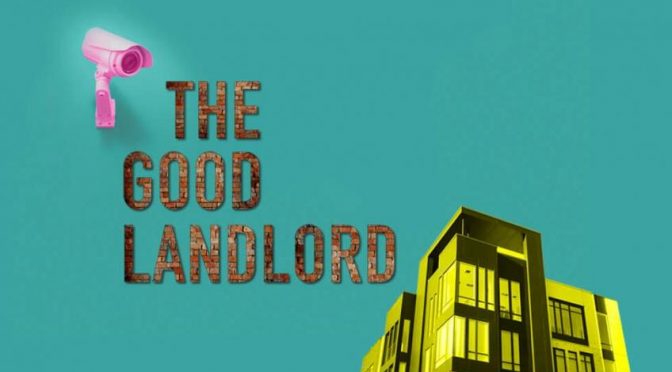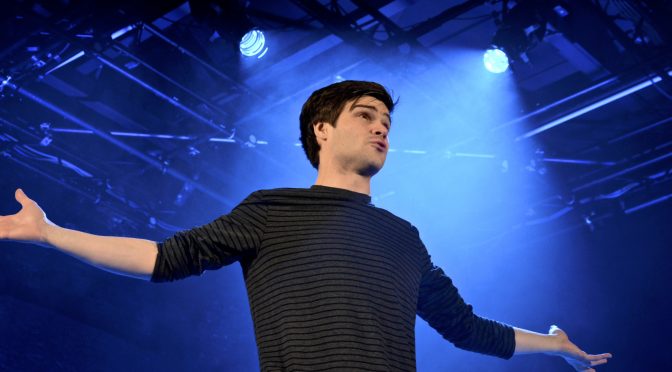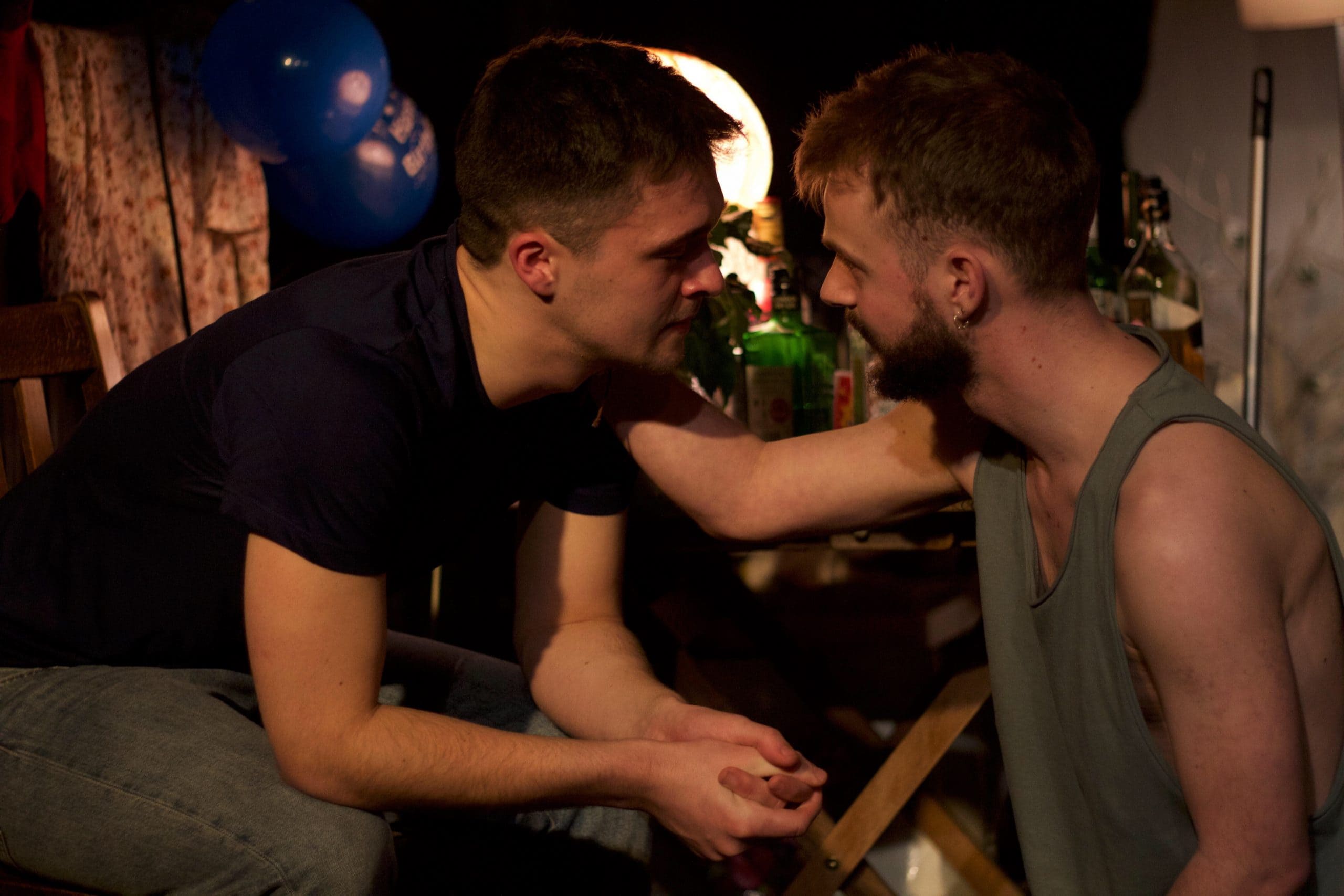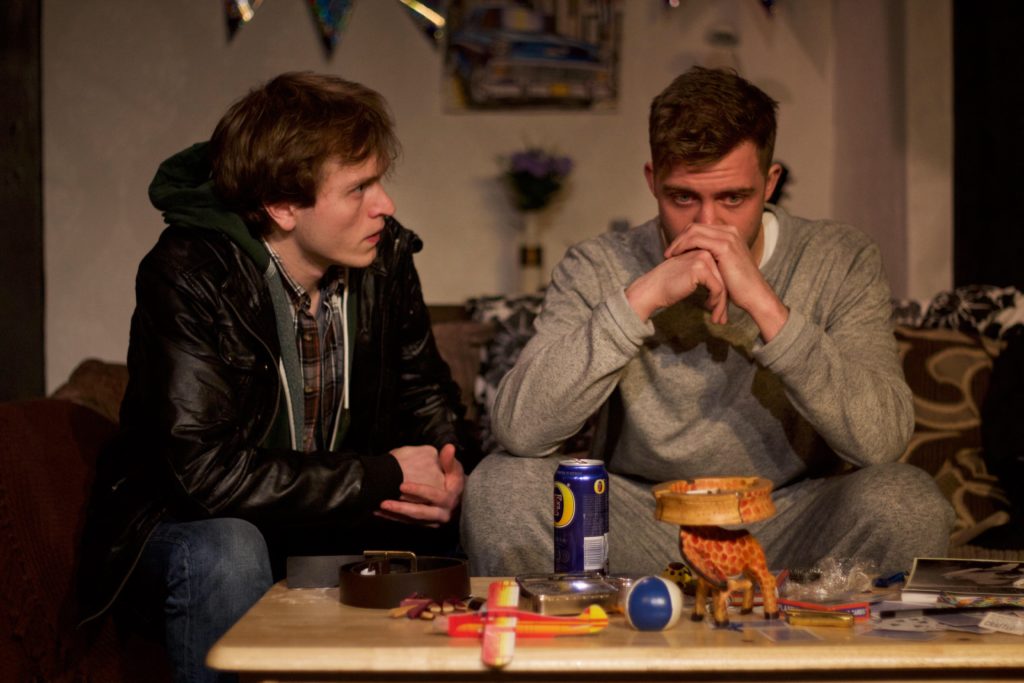Given its subject matter of refugees, this monologue from Searchout Theatre is sure to be powerful. The topic, which has led the company to partner with the charity Refugee Action, is an increasingly pressing concern. But the show also deserves attention as theatre: convictions aside, its execution has to be the focus for review, and the show is exceptionally strong on many fronts.
The painful decision taken by a young woman to leave home, not once but twice, is explored, and we hear of perilous journeys and camp life. Yet Ivan Faute’s skilfully written script is surprisingly understated. Despite the horrors undergone, observations have a reasonableness about them that creates a consistent voice – a tone that is engaged, credible, and indicates in-depth research on the part of Faute. Where our unnamed refugee is coming from or going to isn’t stated. Instead of politics, the rich details in the show are thoughts and feelings.
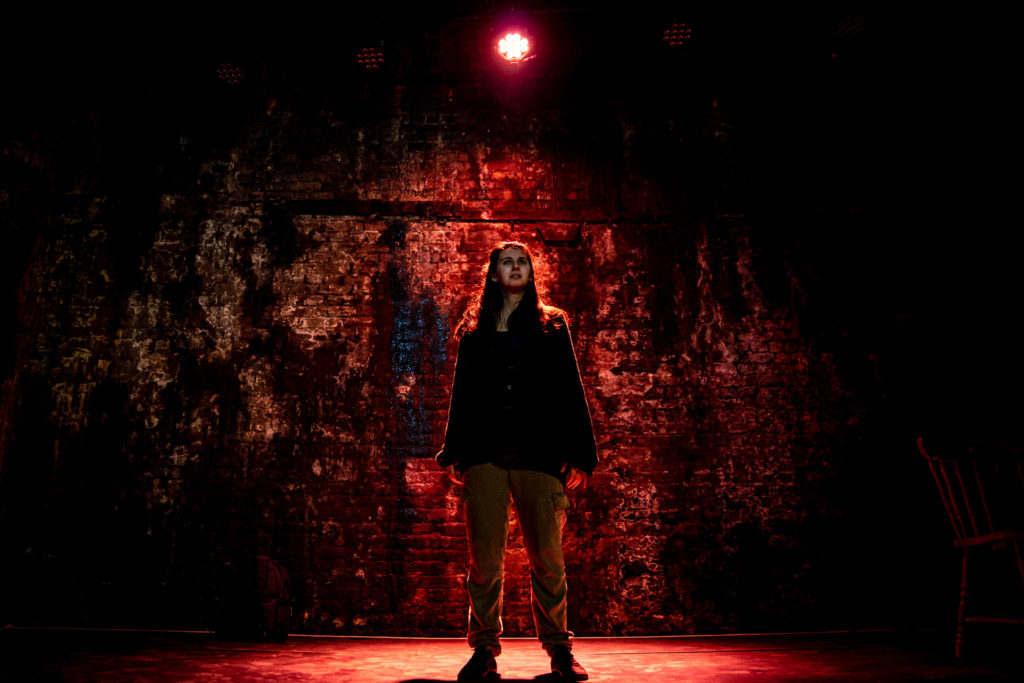
Director Cat Robey’s close appreciation of the text values its intelligence. It would be so easy to make On Arriving relentless, but there is a degree of abstraction from the character that gives us space to think. The many questions and observations highlighted challenge just as much as they create sympathy. Our subject can still analyse and empathise, no matter how awful the situation.
Of course, the play contains traumatic drama. The scene of a boat crossing is particular intense, almost uncomfortably so, in creating a sense of claustrophobia. Special praise goes to the play’s performer, Sophia Eleni, who does an exceptional job of conveying incredible tension while making the action so clear. Throughout, On Arriving is a huge achievement for Eleni, and surely an emotionally draining experience. Each scene is presented with care for its particular concerns: the mix of pain and anger, anxiety for the future and reminiscence about the past are carefully considered and explored. Such detail and complexity create agency for a character so cruelly denied just that degree of care.
Until 9 February 2020
Photos by Steve Gregson

